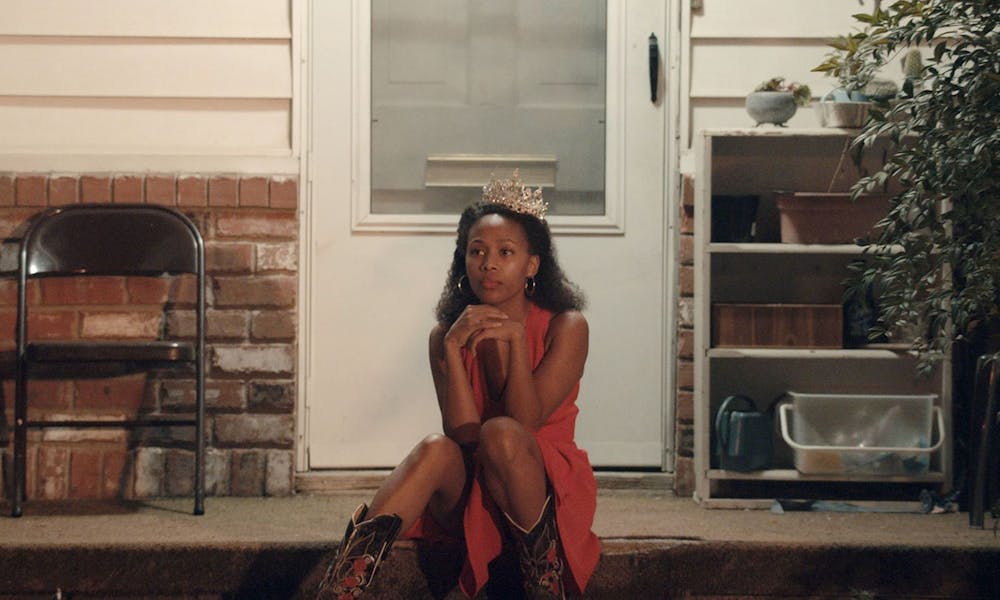Last month on June 19, the country celebrated Juneteenth, a historically overlooked holiday that commemorates the emancipation of enslaved peoples in the United States. Today, Juneteenth is celebrated in the Black community in a number of ways, including pageant contests, which are the primary inspiration for the movie “Miss Juneteenth.”
The film, written and directed by Channing Godfrey Peoples, premiered at the 2020 Sundance Film Festival and was released on June 19 to commemorate the titular holiday. “Miss Juneteenth” was also produced by Duke alumnus Neil Creque Williams, Trinity '06.
“Miss Juneteenth” stars Nicole Beharie as Turquoise Jones, a single mother in smalltown Texas. Turquoise desperately wants her daughter, Kai Jones (Alexis Chikaeze) to win the local Miss Juneteenth pageant. The award is a scholarship to a historically black college or university for the selected winner.
Turquoise herself is a former Miss Juneteenth winner whose college career was interrupted by Kai's birth. To make ends meet, Turquoise dropped out of school and briefly worked as a stripper. Fifteen years later, she works part-time as a bartender and a mortuary beautician. Turquoise is weighed down by feelings of failure: A tacked-up photo of her Miss Juneteenth days serves as a constant reminder of her youthful potential. To give her daughter the future she lost (and to redeem herself), Turquoise throws herself into the task of preparing Kai for the pageant.
“Miss Juneteenth” fully immerses audiences in the world of Turquoise and provides a multifaceted understanding of her life and struggles. Kai is rebellious and insecure, and she yearns for a future on her school’s dance team instead of the pageant. Ronnie, Kai’s father, is unreliable and absent, albeit capable of showing genuine affection towards Turquoise and Kai. The rest of the town look down on Turquoise for her shortcomings and raise their eyebrows at Kai’s Miss Juneteenth application. With the additional expenses of pageant fees and dresses (and the fantastic performance by Beharie), it is no surprise that stress seems to be etched into Turquoise’s skin.
Although the film follows well-worn plot elements, the way in which Peoples executes these beats is wholly unique. For one, Peoples is able to infuse a sense of languidness without steering too far into aimlessness, which is essential for capturing the deeply Southern culture of “Miss Juneteenth.” Peoples also does a spectacular job of humanizing her characters: Quiet glances, brief pauses and lingering shots fill out the story, adding depth and vivid color to an otherwise plain story structure.
“Miss Juneteenth” quietly discusses African-American embodiment in a modern, yet traditional world — a world that has consistently failed them. To this end, “Miss Juneteenth” is unwaveringly focused on its characters. Turquoise, Ronnie and Kai all harbor their own feelings of inadequacy that simultaneously weigh them down and propel them through life. The movie’s shining moments are hushed and private: Turquoise and Kai celebrating Kai’s birthday, Kai practicing her dance moves in the mirror, Ronnie and Turquoise reuniting despite past judgements.
Since the premiere of “Miss Juneteenth,” a social upheaval has begun, and this movie explores the politics of living while Black in an intimate, humble and almost un-political way. If intersectionality and inclusion are the way forward, “Miss Juneteenth” adds an important dimension by taking time to explore the stories of personal resilience, self-worth and family growth.
Get The Chronicle straight to your inbox
Sign up for our weekly newsletter. Cancel at any time.

